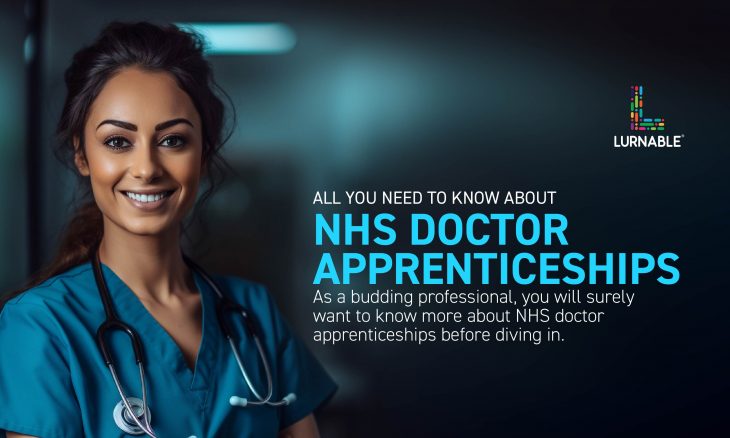The new Medical Doctor Degree Apprenticeship by the NHS is great news for aspiring professionals looking to become doctors without the traditional medical college education. Health Education England (HEE), the NHS recruitment and training body, has announced the upcoming launch of the programme in September 2024.
A part of the NHS England Long-Term Workforce Plan, these apprenticeships aim to create, train, and retain qualified healthcare professionals fit for the future. Besides bypassing the medical college and saving the tuition fees, apprentices enrolling in the programme will get the opportunity to earn a wage during the training period. At the same time, they will have to match the high standards of the traditional medical education route.
The initiative comes ahead as a significant move to make careers in medicine more accessible to students and help the NHS to recruit frontline medics. Additionally, this alternative route will ensure more diversity by adding people of different backgrounds to the NHS workforce. As a budding professional, you will surely want to know more about NHS doctor apprenticeships before diving in. We have in-depth information about it.
KEY FACTS ABOUT NHS DOCTOR APPRENTICESHIPS
- The apprenticeship programme will complete in five years
- It will include the entire academic elements of medical training, namely a medical degree and the licensing assessment
- Many NHS employers are ready to pay more than the minimum wage to trainees
- The training includes a weekly schedule with one day at a training centre and four days on work placement
WHAT ARE THE ENTRY REQUIREMENTS?
The entry requirements for NHS doctor apprenticeship will be comparable to the conventional route. They will be established by medical schools and employers of trainees.
- Medical Schools: Minimum entry requirements for their courses
- Employers: Assurance about the candidate being capable of academic learning and possess the behavior and values of a Medical Doctor
The scheme is also expected to have options for graduates from non-medical backgrounds. Besides these qualifying criteria, anyone currently working in other healthcare roles may also apply. Both new and existing members of the NHS can apply to gain a qualification and implement their learning without missing out on their salary.
WHO CAN OFFER DOCTOR APPRENTICESHIPS?
Employers and medical schools interested in delivering the apprenticeship will have to follow a comprehensive resource pack developed by medical schools, medical unions, employers, regulators, and patient representatives. Employers may include General Practitioner practices, hospitals, public health, and local authorities.
HOW DOES THE PROGRAMME WORK?
A medical doctor degree apprentice will work with a healthcare provider organisation as an apprentice. These professionals work and study flexibly to put their skills and knowledge into practice immediately for the benefit of patients. Besides working as a part of the employer organization, apprentices will do the same training following the same standard as those taking traditional routes. Medical schools will have to get approval from the General Medical Council to offer the Medical Doctor Degree Apprenticeship. After graduation, apprentices can apply for a Foundation Programme as a part of their future career roadmap.
WHERE WILL THE VACANCIES BE ADVERTISED?
The medical doctor degree apprenticeship scheme is not expected to start before 2024. Providers are still exploring their best options to deliver the programme. The process also entails formalities such as applying to the Register of Apprenticeship Training Providers and preparing the course content and resources. Further, employers need to have adequate plans for recruitment and training. Once things are official, vacancies will be advertised locally on platforms like NHS jobs and the government Find an Apprenticeship website.
WHAT NEXT?
If things go according to plan, the medical doctor apprenticeship programme could see one in ten doctors start working without even completing their medical degree right after their A-levels. Additionally, it is an earn-and-learn opportunity for people from deprived socio-economic backgrounds to pursue higher education in medicine without worrying about the degree cost.

If you are considering studying abroad why don’t you discuss your prospects and opportunities with experts at Lurnable’s dedicated study abroad counselling division LurnPathways?





